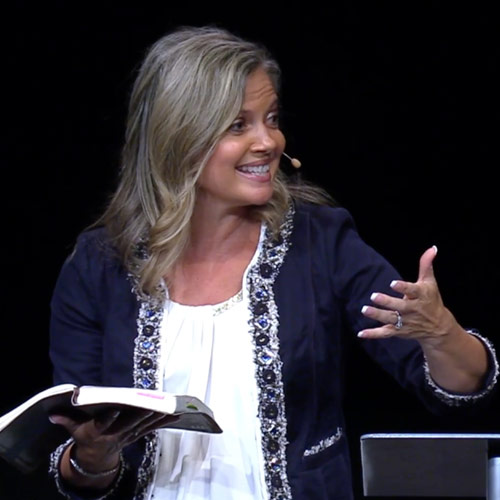The Bitter Root
Perhaps you can’t relate to this, but occasionally, I get angry. And when I do, I have a list of very valid reasons that explain why I have every right to feel that way. If I choose to feed that anger, it can turn into something pretty ugly. Just ask my husband. After nineteen years, he’s witnessed a few of my less than godly moments.
Those moments, however, are always the ones I look back on with regret. Have you ever noticed how they usually come back to bite you?
Today my friend Wendy Blight, author and speaker with Proverbs 31 Ministries, shares her own experience with holding bitterness. I pray her story will encourage you to trust God and extend grace when you feel wronged by someone. Remember, God’s instructions don’t always feel natural, but they are always for us.
Bear with each other and forgive one another if any of you has a grievance against someone. Forgive as the Lord forgave you. Colossians 3:13
The Bitter Root

By Wendy Blight
"See to it that no one falls short of the grace of God and that no bitter root grows up to cause trouble and defile many." (Hebrews 12:15 NIV)
How dare she ask this of me?
I reread her email, which only fueled my fury. Rather than reply immediately, I decided to forward the note to my husband for his advice. Any words I would've written to her at that moment would not have been kind.
Bitterness took root as I typed a note to my husband, spewing out my frustration. When I finished, I reviewed my message with great satisfaction. I'd expressed myself well to a safe person. Then I pressed send.
In that moment, I glanced at the "to" box. I was horrified when I realized I'd hit "reply" instead of "forward." My heart sank. All my hurtful words and anger were now en route to her, not my husband.
I felt sick. What should I do? I picked up the phone and called my husband at work. We both agreed I needed to email her, explain what happened, and ask forgiveness. It was the hardest email I've ever written.
Her gracious response astounded me. She thanked me for my apology and closed her response with these words, "I forgive you, so let's just put this behind us." Her words of forgiveness melted the bitterness that had consumed my heart just an hour before. I'm sure she was hurt. My words were harsh. Yet she chose to overlook and pardon my offense.
It's easy to forget that we have choices when we're offended. We can surrender our hurt or hold on to our hurt. We can extend grace or harbor bitterness.
Bitterness is like poison that infects our lives. The author of Hebrews compares bitterness to a root that overtakes our hearts and causes trouble in many other areas of our lives (Hebrews 12:15). Although our feelings of bitterness, anger, and resentment may seem justified, they are not. Instead, they're hurtful and destructive—to ourselves as well as to the person who hurt us.
God's Word teaches us to forgive and instructs us not to let the sun go down while we're angry. When we do, we give the devil a place to work in our hearts and relationships. Instead of allowing the enemy room to plant relational weeds between us, my friend chose forgiveness, extended grace, and prevented a bitter root from taking hold.
She became a living example of the apostle Paul's words to the believers at Ephesus: "Be kind and compassionate to one another, forgiving each other, just as in Christ God forgave you" (Ephesians 4:32). Her wise example helped me move beyond my anger. My friend's gracious decision modeled humility. Her choice to forgive salvaged our friendship and changed how I react toward others who offend me. From that day forward, I've prayed that God's grace would flow through me, leaving no room for bitter roots.
Dear Lord, search my heart. See if there is any bitterness in me. Lead me to forgiveness. Enable me through the power of Your Holy Spirit to let go of all bitterness and to extend Your amazing grace. In Jesus' name, Amen.
Remember
Choosing forgiveness is the only way to prevent a bitter root from taking root in your heart and growing.
Reflect
Is there someone against whom you harbor unforgiveness? What is it that keeps you from being able to forgive this person?
Respond
Review the verses shared in this devotion. Prayerfully ask God what your next step is with this person. Ask Him to equip you to take that first step, and then take it.
Power Verses
Colossians 3:13; Romans 12:9
Taken from Encouragement for Today: Devotions for Everyday Living by Renee Swope, Lysa TerKeurst and Samantha Evilsizer and the Proverbs 31 Ministries Team. © 2013 Proverbs 31 Ministries. Used by permission of Zondervan.www.zondervan.com.
For more from Wendy Blight, visit her blog at www.wendyblight.com, or study with her at www.inscribedstudies.com.







